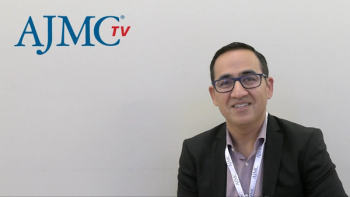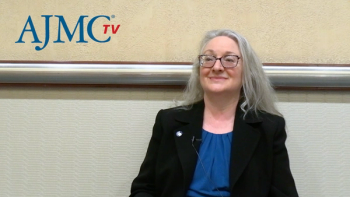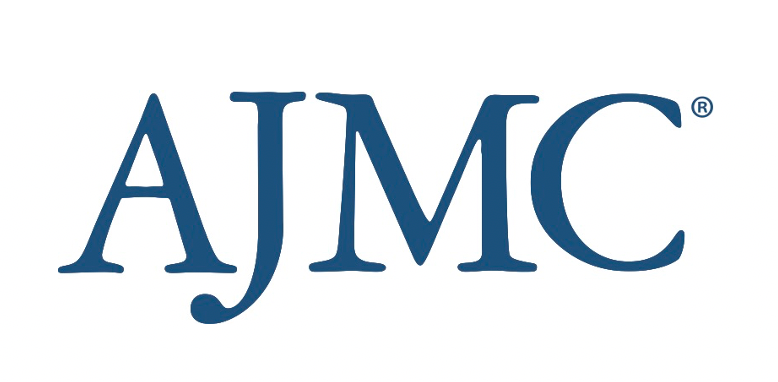
Health Care Cost
Latest News
Latest Videos

CME Content
More News

Investigators said the unique features of chimeric antigen receptor (CAR) T-cell therapy may warrant novel approaches to cost-effectiveness analysis.

The Wellth smartphone app significantly increased medication adherence and lowered unnecessary health care utilization and costs over 9 months among Medicaid beneficiaries who were self-managing chronic conditions.

The Center on Health Equity & Access focuses on addressing disparities in health care access, exploring innovative solutions, policies, and research to improve health equity across diverse populations.

Navdeep Tangri, MD, PhD, FRCP, University of Manitoba, speaks to the value of population health strategies in clinical approaches to care delivery for patients with chronic kidney disease (CKD).

Posters at AMCP Nexus analyzed the burden of flares on patients with atopic dermatitis (AD) and the impact initiating ruxolitinib cream had on use of other therapies.

Co-pay accumulators and maximizers are 2 programs that insurers have started implementing to help them redirect financial assistance from the patient, said Kimberly Westrich, MA, chief strategy officer, National Pharmaceutical Council.

A lot of attention has been on the drug price negotiation aspects of the Inflation Reduction Act (IRA), but the implementation of out-of-pocket smoothing is something to keep an eye on, said Adam Colborn, JD, of AMCP.

Artificial intelligence can revolutionize drug discovery by expediting development, reducing costs, and improving treatment options, but addressing its limitations is crucial for future success.

Miriam Godwin, CMMI, National Kidney Foundation, touches on the gaps in kidney care that public policy can address, as well as the importance of thinking about the long-term benefits of value-based care.

Despite advancements in umbilical cord blood transplants, social determinants of health, such as poverty and public insurance, continue to impact outcomes, underscoring the need for equitable access to lifesaving treatments.

Two posters compared health care resource utilization (HCRU) and financial burdens of people living with HIV with a non-HIV population and people with HIV who are heavily treated with those have experienced less treatment.

The progress made to mitigate the opioid use crisis still pales in comparison with the crucial effort needed to address it, especially in regard to accessing medication.

Full-time caregivers to loved one's with Alzheimer disease or other dementias could earn over $100,000 annually if they were compensated for their time and responsibilities.

Lecanemab (Leqembi; Eisai/Biogen) received traditional approval from the FDA in July 2023, following an accelerated approval in January 2023, to treat adult patients who have Alzheimer disease.

CMS released a preliminary list of 101 generic drugs for its Medicare $2 Drug List Model, which aims to cap out-of-pocket costs at $2 per month for select medications.

Patients with refractory metastatic colorectal cancer could use trifluridine/tipiracil (TAS-102) plus bevacizumab as a cost effective third line treatment in China but the same was not found in the United States and United Kingdom.

The theme of our inaugural regional Institute for Value-Based Medicine® event in Boston was, “Elevating Value in Cancer Care,” and one of the 4 panel discussions focused on the important contributions of pharmacists and the practice of pharmacy to the oncology space.

Vice President Kamala Harris announced her proposal that would require Medicare to cover costs of long-term home care, which would mark a notable expansion of Medicare.

Recent results from a new diabetes reversal program demonstrate the reliable, sustained benefits of nonpharmacological interventions in the management of diabetes and overall health of patients.

Between 2011 and 2020, the Veterans Health Administration spent $78 billion on health services for veterans also enrolled in Medicare Advantage.

Hereditary breast cancers are caused by germline mutations, which are genetic mutations inherited at conception and so called because they originate in germ cells, those that develop into reproductive cells and become eggs in female individuals and sperm in male individuals.

Economic incentives and patent protections drive development of innovative medications. Drug prices are determined by consumer demand, not production costs. Therefore, governmental regulation risks future investment in research and development.

The Center on Health Equity & Access is dedicated to reducing health care disparities by exploring innovative solutions, policies, and research that advance health equity for diverse populations.

Inpatient hospital care was primarily controlled by 1 or 2 health systems in nearly half of the metropolitan areas in the US in 2022.

A retrospective analysis on newborn screening for spinal muscular atrophy (SMA) provides further evidence for the benefits of early identification and treatment of the disease.

















